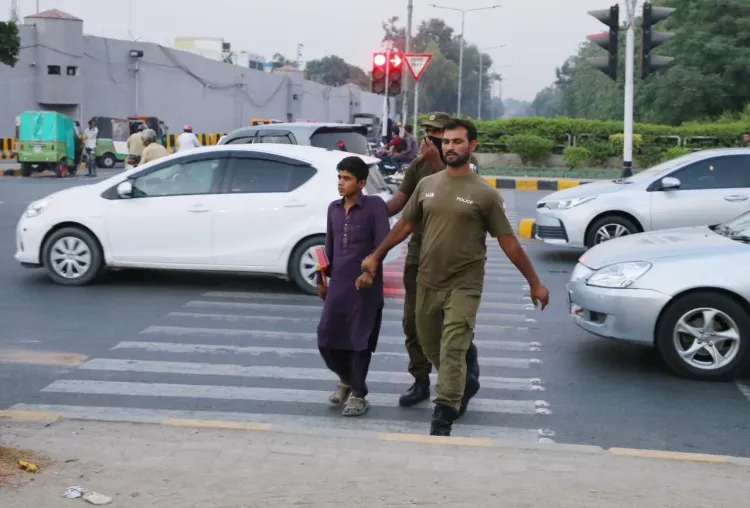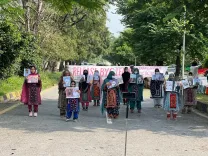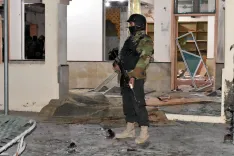How is Pakistan's Lahore High Court Tackling the Beggar Mafia?

Synopsis
Key Takeaways
- Lahore High Court orders strict action against the beggar mafia.
- Development of a mobile app to assist enforcement efforts.
- Existing anti-begging laws are to be effectively implemented.
- Establishment of rehabilitation centers for beggars.
- Penalties include imprisonment and significant fines for offenders.
Lahore, May 26 (NationPress) The Lahore High Court (LHC) in Pakistan has issued a directive to the authorities of Punjab province, mandating them to take swift action against the rapidly growing beggar mafia. This includes the creation of a mobile application to facilitate these efforts.
The court expressed its dissatisfaction with the provincial government for not implementing existing laws aimed at combating begging in the region.
During the proceedings of a petition requesting the court's intervention for the enforcement of the Anti-Beggary Act, it was argued that, although laws to address begging in Punjab are already established, provincial government agencies have not taken necessary actions to uphold the court's directives.
The LHC issued new orders, compelling authorities to enforce the anti-begging legislation and to develop a mobile app for assistance in this matter. They were instructed to present a report on the implementation progress regarding anti-begging measures within three months.
"The court also instructed authorities to file First Investigation Reports (FIRs) against those involved in the beggar mafia," stated Abid Khan, a journalist based in Lahore.
"Many of the young children seen begging on streets, in markets, and at traffic signals are under the control of handlers who are part of this extensive mafia. These children are often coerced into begging, with many having been abducted from different regions or rural areas," he noted.
Furthermore, the court urged the establishment of operational rehabilitation centers and shelters for beggars.
After adjourning the hearing for three months, the Lahore High Court expressed its dissatisfaction with the Punjab Home Department regarding the report on the progress of the anti-begging law, warning that the next report must detail the advancements made.
The provincial government's cabinet division has recently approved the anti-begging law, categorizing it as a non-bailable offense across Punjab. According to government sources, "the Cabinet's Standing Committee on Legislation and Privatization has sanctioned amendments to the Vagrancy Ordinance 1958."
Under this law, begging is classified as a non-bailable offense, with those involved in the beggar mafia facing imprisonment for up to eight years, alongside a minimum fine of Rs 500,000.









